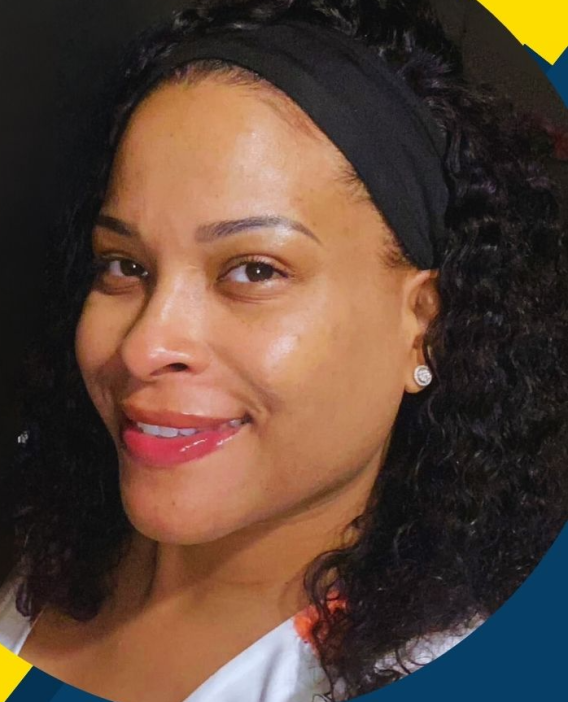News
Alumni highlight: MA graduate Krystle Holliday's journey into the Infant and Early Childhood Mental Health field
When Krystle Holliday decided to pursue a master's degree in applied child and adolescent development at ICD, she wasn't just thinking about herself. She was equally as determined to be an example of success to her own child and to contribute to her community as a Black mental health professional. In this Q & A, she shares with us what led her to the program, how she managed graduate school as a parent, and how she's using her degree now. Holliday graduated in spring 2024 from the Infant and Early Childhood Mental Health (IECMH) track with additional coursework to pursue licensure as a Licensed Professional Clinical Counselor (LPCC).
Tell us a little bit about yourself.
KH: I am a long time resident of the Twin Cities, a Black woman, and a mother to a child who has special needs.
What were you doing before you decided to pursue your Master's degree and what made you decide to take that next step?
KH: Before I decided to apply at the U of M, I had a variety of jobs in different fields. I worked temporary roles in the mortgage industry because I needed to be present for my family before moving into supportive roles in K-12 and Early Childhood Family Education (ECFE). I chose to pursue my Master's degree because I wanted more for my family. I needed to show my child and other young people that with hard work, persistence, and planning we can reach our goals despite any obstacles in our path. I also wanted to achieve great things and it was important to me culturally, to contribute to the population of Black mental health professionals both as a member of the field and a provider available to my community.
How did you select the Infant and Early Childhood Mental Health track of the Master's in Applied Child and Adolescent Development program?
KH: I took the time to be introspective about what I was truly passionate about in life. So, I was able to identify working with children was my goal long before I applied to the program. After finishing undergrad, I began looking for programs that would work for the needs of my family and allow me to get education in a specialized field as opposed to pursuing a program with a more broad focus. Truthfully, after identifying what I “wanted”, I talked to my best friend, did some google searching and found the IECMH track. After reading about the program on the U of M website and seeing it was a program offered completely online, it was a no brainer for me!!!

Krystle Holliday

What were the highlights of the program for you?
KH: The online courses!!! Being a parent, working full time, having a family at home, and being older than most of those applying to the program in addition to starting this program weeks before the pandemic changed everything, taking classes online was such a benefit. I enjoyed many of the courses I took!! The infant observation class, though it may seem daunting at first, is an AMAAAAZING experience. Emily and Fiyyaz were two of many memorable instructors for me because they pair real world, down to earth experiences with the “need to know” textbook stuff.
What are you doing now and how do you think the IECMH program prepared you for the next steps in your career?
KH: I am just moving into the field as a part- time child focused therapist because it best supports my needs right now. The IECMH program gave me the education, real-world application, and connections I needed to feel confident moving into the field. I already had lived experience in Infant/Early Childhood development through working in ECFE and being a parent, but the program added to that and supported my goal of moving toward the credentials needed to secure work in the field.
Do you have any tips for students considering this Master’s program?
KH: The greatest tip I would give anyone is to manage your time well. If this is a challenge for you, work at it. Admittedly, before I began undergrad I was a major procrastinator, waiting until the night before a big assignment was due to cram it in. When you get into a Master's program though, there is far more at stake. So planning your time accordingly will set you up for doing well. For example, I always read the syllabus as soon as it was available to get an idea of what to expect and highlight any questions, concerns or big deadlines that might conflict with my personal life. I would, when able, begin reading assigned material a week before the course actually began to give myself a starting cushion for the “unplanned”. As a parent, when children get sick we have to stop and care for them or even when we get sick or just feel burned out and need a break we often feel pressured to perform because of deadlines. Managing my time addressed this for me and saved me such much stress. Second, communicate with the instructors and connect with at least one classmate to have as an internal support. Lastly, believe that you will do well. It will motivate you to put forth the effort and energy needed to get the outcome you want!